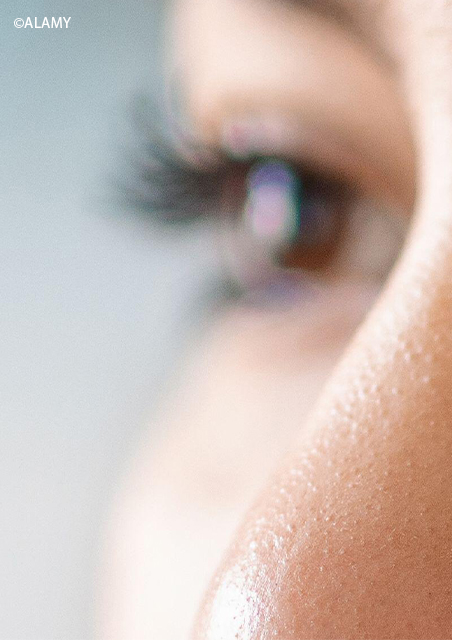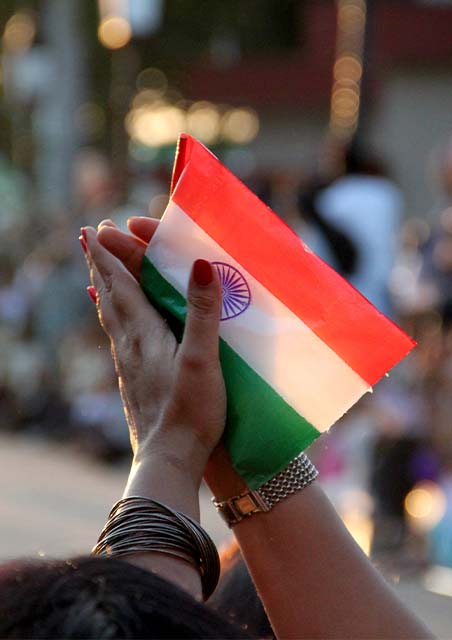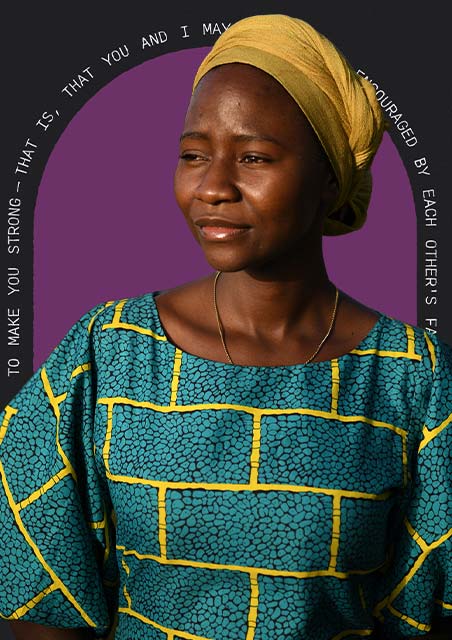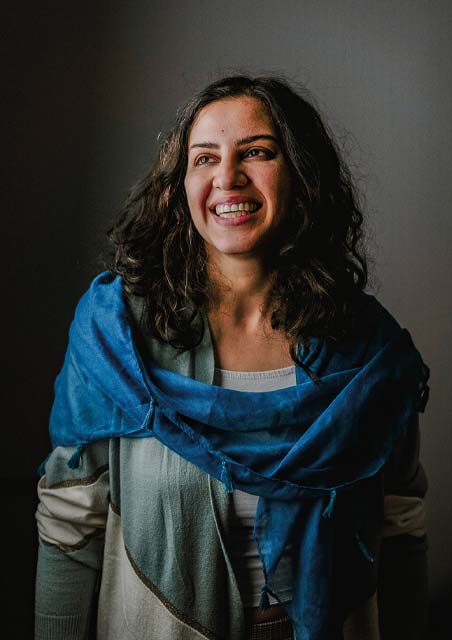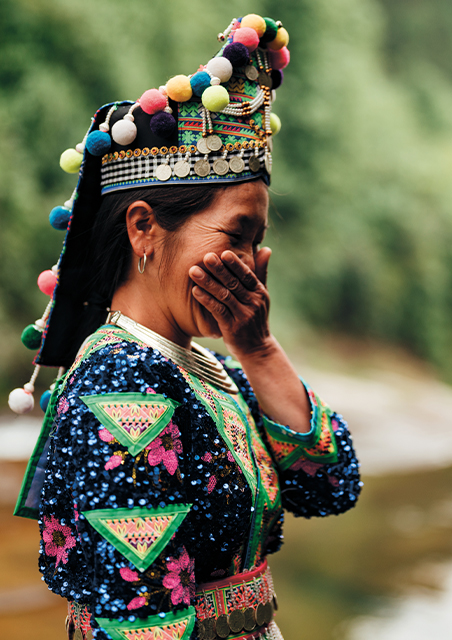Safe at home: strengthening girls and women at risk
During coronavirus lockdown, many women across the world face an increase in domestic violence. In many parts of the world, women are already vulnerable to persecution for their gender AND their faith - and the lockdown could exacerbate this.
With the world in lockdown due to Covid-19, billions of people have been told to ‘stay safe and stay home’. Such a mantra assumes it is safe to do so. For many women and girls around the world, particularly those who are already victims of domestic abuse, isolation and social distancing is putting them at risk, more than ever.
It’s during times of crisis – such as natural disasters, war and epidemics – that the risk of gender-based violence escalates considerably. This is true across the world, with women being obliged to isolate with violent family members. In many countries, that might include family who have not accepted a woman’s conversion to Christianity from another faith. Already isolated from other believers, this period exacerbates that isolation. And in many parts of the world, where Christian women are doubly vulnerable for their faith, measures taken to combat Covid-19 may well be compounding the pressure and pain of persecution.
‘Buried alive’
Marta in Egypt understands this, from her own experience and from what girls in her community tell her. Stories of kidnappings, forced marriage or sexual abuse, sometimes at the hands of those closest to them, are often not listened to, Marta says: “A girl’s accusation isn’t often believed. Instead, she will be scolded for saying bad things about other people. The abuse and pressure we face causes a lot of stress, and many of us have low self-esteem. You could say the girls here are ‘buried alive’; they are alive but unable to make their own choices. We are not allowed to speak up for ourselves or have an opinion. Often we can’t even say ‘Yes’ or ‘No’ to our marriage partners.”
Opportunity for abusers
Those who are already disadvantaged will be disproportionately affected by the Covid-19 pandemic. The United Nations has warned that women in poorer countries and smaller homes are likely to have fewer ways to report abuse. Anita Bhatia, the Deputy Executive Director of UN Women says, “The very technique we are using to protect people from the virus can perversely impact victims of domestic violence.” She adds, “While we absolutely support the need to follow these measures of social distancing and isolation, we also recognise that it provides an opportunity for abusers to unleash more violence.”
Hidden persecution
Open Doors’ 2020 report The Hidden Face of Persecution, which focuses on the targeted abuse of Christian women worldwide, states that, “The nature of persecution against women is hidden, complex and violent.”
Sexual violence and forced marriage are cited by 84 per cent (that’s 42 out of the top 50) World Watch List countries as instruments of persecution. Incarceration of daughters within the family home also permits abuse - verbal, physical, psychological, sexual, and even deadly – to take place under the cover of respectability. Where gender discrimination is prevalent, persecution against Christian girls and women is easy to disguise:
- hidden within patriarchal societies where women are already expected to operate invisibly within the public sphere
- hidden from discovery because of cultural fear and stigma
- hidden within homes where family disapproval and psychological violence - often a pre- cursor to physical violence - exists.
A persecution expert from Nepal says: “In an initial phase, they (women) are emotionally tortured by the immediate family members i.e., husband, in-laws, parents, etc. Gradually, the mental and physical torture starts to take place.”
Seen, valued and empowered
Marta was helped in her teenage years by the discovery that girls in a nearby village were receiving support. “I invited the girls’ ministry worker to our village. She started coming monthly to give lectures and talk with us individually. Also, in the group, we started opening up to each other and started to talk about the problems we didn’t dare to mention before.” Today, she performs the same valuable service, supported by a partner of Open Doors, giving girls a sense of their worth in Christ.
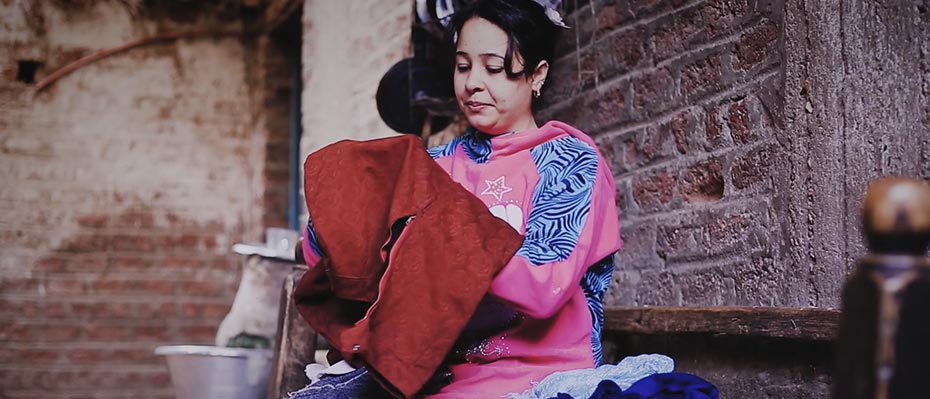
Marta, Egypt
Open Doors’ vision is that every woman persecuted for her faith and gender is seen, valued and empowered. Around the world, through local churches and partners, we provide trauma care for persecuted women who’ve been abused, and trauma care training for churches. We also offer preventative training to strengthen girls in their faith and sense of self-esteem, as well as discipleship training for men and married couples.
A Central Asian pastor shared after a training session about family and marriage life: “I always learned that a carpet has more value than a woman, so I treated my wife worse than a doormat. But, in the training, I learned the biblical way of family life and how to treat my wife. And now I look at her as the crown on my life and I carry her with dignity and love!”
PLEASE PRAY
- Thank God for Marta as she provides support and strength for Christian girls in Egypt
- That during this time of isolation, God will protect those vulnerable to persecution and abuse in the home
- That Open Doors’ projects and See. Change. campaign will bring recognition and support for women persecuted for their religious beliefs.
*Name changed for security reasons
